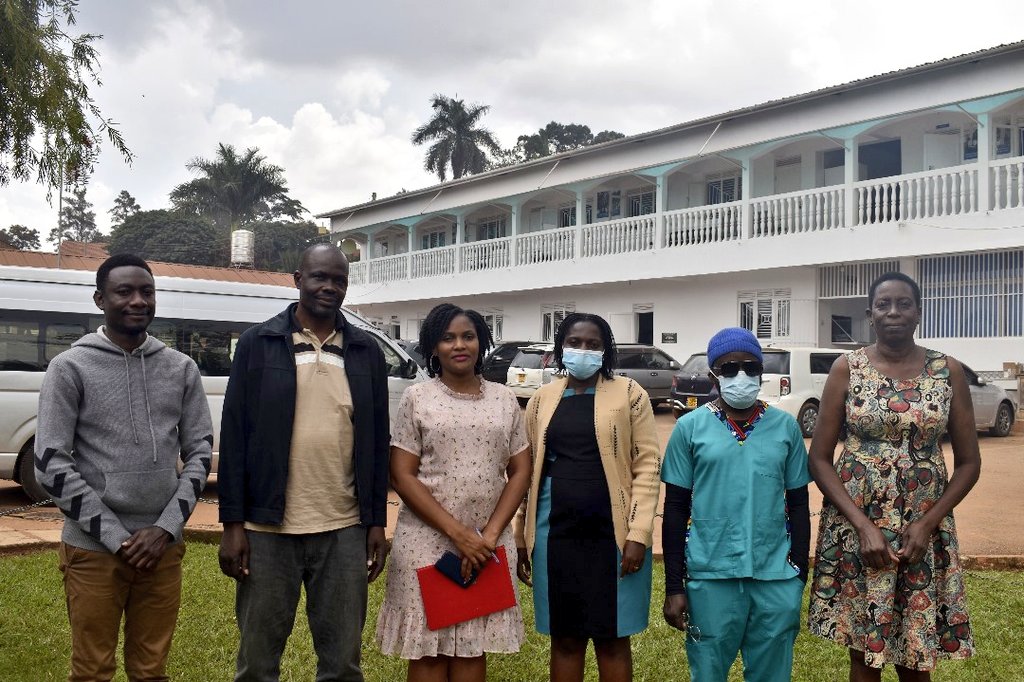To strengthen the quality of HIV testing services and ensure compliance with national standards, Reach Out Mbuya Community Health Initiative (ROM), in partnership with the Ministry of Health (MoH), conducted an Index Testing Minimum Components Assessment across selected health facilities in Kampala from 25th–29th August 2025.
This initiative was part of ongoing efforts to enhance the quality, safety, and ethical conduct of HIV testing while improving linkage to treatment and care services.
What is Index Testing?
Index Testing is a client-centered, targeted approach where partners, biological children, and other close contacts of a person living with HIV (the “index client”) are offered voluntary HIV testing and counseling. The model aims to identify undiagnosed HIV-positive individuals early and link them to treatment, thereby curbing further transmission.
Through this assessment, ROM and MoH evaluated how health facilities are implementing each of the minimum components of Index Testing, which include:
- Elicitation and Documentation: Proper identification and recording of index clients and their contacts.
- Confidentiality and Consent: Ensuring client privacy, voluntary participation, and informed consent.
- Contact Tracing and Notification: Using safe and ethical partner notification methods.
- Testing and Linkage: Providing voluntary HIV testing and linking those who test positive to care.
- Quality Assurance: Following national testing algorithms and ensuring result accuracy.
- Data Management: Proper record-keeping, reporting, and use of national tools.
Promoting Safe and Client-Centered HIV Services
During the five-day assessment, joint teams visited nine facilities including Kawempe Home Care Clinic, Kisenyi Health Centre IV, Mulago Hospital, Komamboga HC III, Kiruddu National Hospital, MARPI STI Clinic, and ROM sites in Banda, Mbuya, and Kinawataka.
Each facility was assessed for its adherence to quality assurance standards, ethical considerations, and effectiveness in tracing and testing contacts of index clients. The exercise also provided an opportunity to identify gaps, document best practices, and strengthen staff capacity in service delivery.
The teams also engaged service providers in interactive sessions that emphasized client safety, gender sensitivity, and confidentiality — key pillars in the ethical implementation of index testing.
Key Findings and Lessons Learned
- Most facilities demonstrated strong adherence to national guidelines and maintained confidentiality during partner elicitation and notification.
- Documentation and data management practices improved significantly with the introduction of standardized MoH tools.
- A few gaps were noted in record consistency and linkage follow-up, prompting immediate mentorship for improvement.
- Collaboration between ROM, MoH, and facility staff created an enabling environment for peer learning and sustainability of quality improvement interventions.
Commitment to Continuous Quality Improvement
As ROM continues to implement the Kampala HIV Project, such collaborations will remain instrumental in identifying service delivery gaps, enhancing facility performance, and improving health outcomes for communities across the region.
“We are proud of our partnership with the Ministry of Health and grateful to our dedicated field teams for championing ethical HIV testing practices. We hope to create a future where every person receives the care and respect they deserve.” — ROM Kampala HIV Project Team member.

